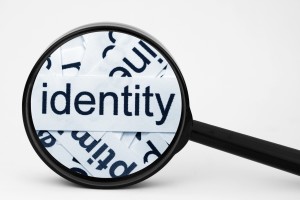
Identity theft not only happens online, but a lot of identity theft fraud is a result of offline activities. In fact, we were victims of identity theft because a mortgage broker mishandled the paper file that contained all of our personal financial information. Here are 10 tips, courtesy of the U.S. government, on how to prevent offline identity theft.
- Don’t carry your social security card on you. Not in your wallet. Don’t write it on your checks. Only give it out when absolutely necessary.
- Protect your PINs. Don’t write it anywhere! Especially don’t write it on a card and keep it in your wallet with your debit and credit cards.
- Watch out for “shoulder surfers”. Don’t give others the opportunity to look over your shoulder when you are entering your PIN – watch out for people with cell phone cameras who can easily and quickly snap a picture of what you are doing. Just best to be aware of your surroundings and wait, if necessary, till you have privacy.
- Don’t let your mail pile up in your mailbox. If you plan to go on vacation or be away for a few days, put a hold on your mail with the post office.
- Calendar your billing cycles. Contact your creditors right away if you miss receiving a bill or bank statement since it could mean someone has stolen them from your mailbox.
- Don’t throw away your receipts – at least until you have a chance to verify that the correct amounts were charged on your statements. Always be on the lookout for unauthorized charges.
- Don’t give dumpster divers any treasures. As I said, our identity was stolen because an irresponsible mortgage broker threw our file in a dumpster. Protect yourself by shredding or destroying any financial documents that could compromise your identity.
- Keep personal information stored in a safe place. At home and at work, avoid leaving important personal information lying around.
- Don’t give out personal information to unsolicited people. That goes for phone calls, mail, or emails. Check and double check, verify the source before you give out any personal information to anyone.
- Check your credit report on an annual basis. If you are concerned that someone may have gotten some of your information, check more often.
What to do if you suspect you are a victim of identity theft?
- Contact all your credit card companies and all your financial institutions immediately. Phone numbers can usually be found on the back of your debit and credit cards or on your statements.
- Contact the police and report the fraud immediately. Keep a copy of the police report to use with creditors to refute unauthorized charges.
- Contact all the credit reporting agencies. Ask them to put a fraud alert on your account which will help protect you against someone fraudulently opening a credit account. The merchants will be flagged to contact you to verify before they open any new credit in your name.
Taking these precautions will help prevent you from becoming another identity theft statistic. If you are concerned about identity theft as it relates to your unwanted electronic data containing devices – contact us. We specialize in data destruction and securing your personal information to protect you from identity theft.